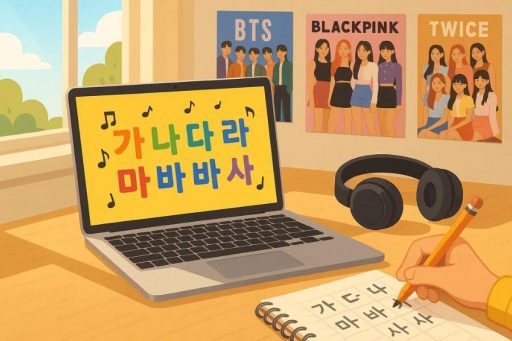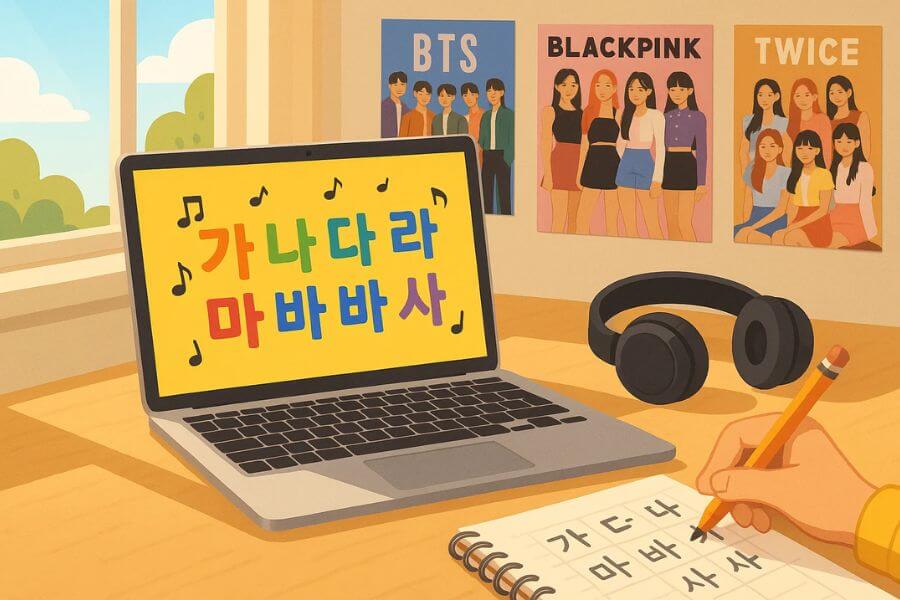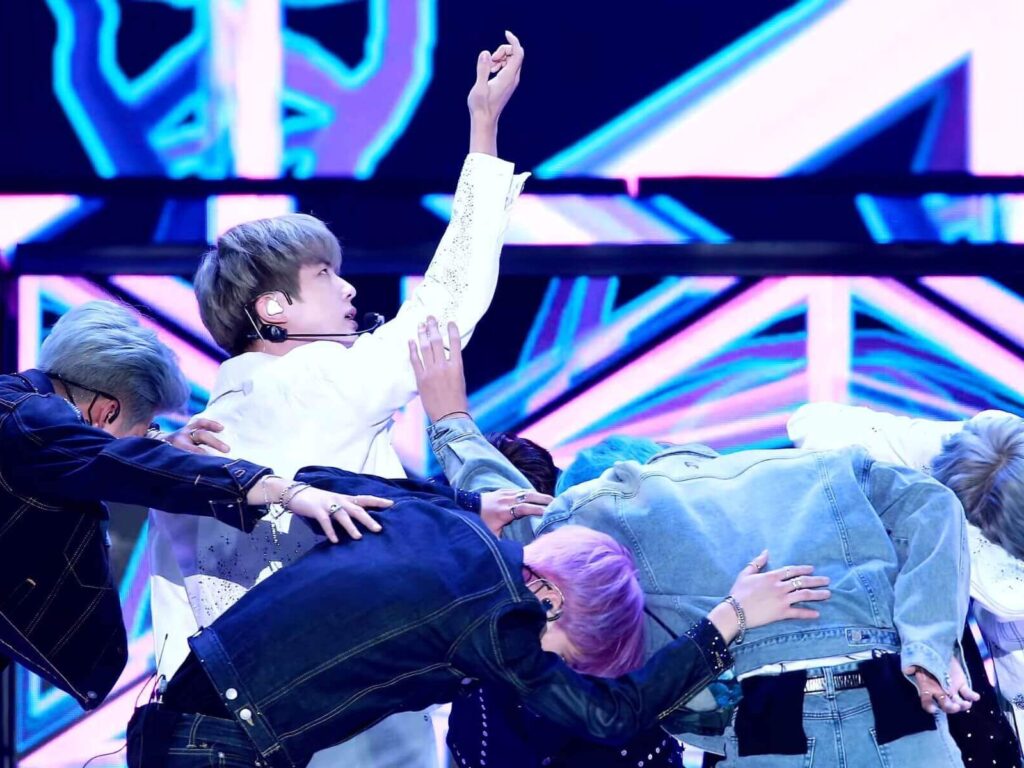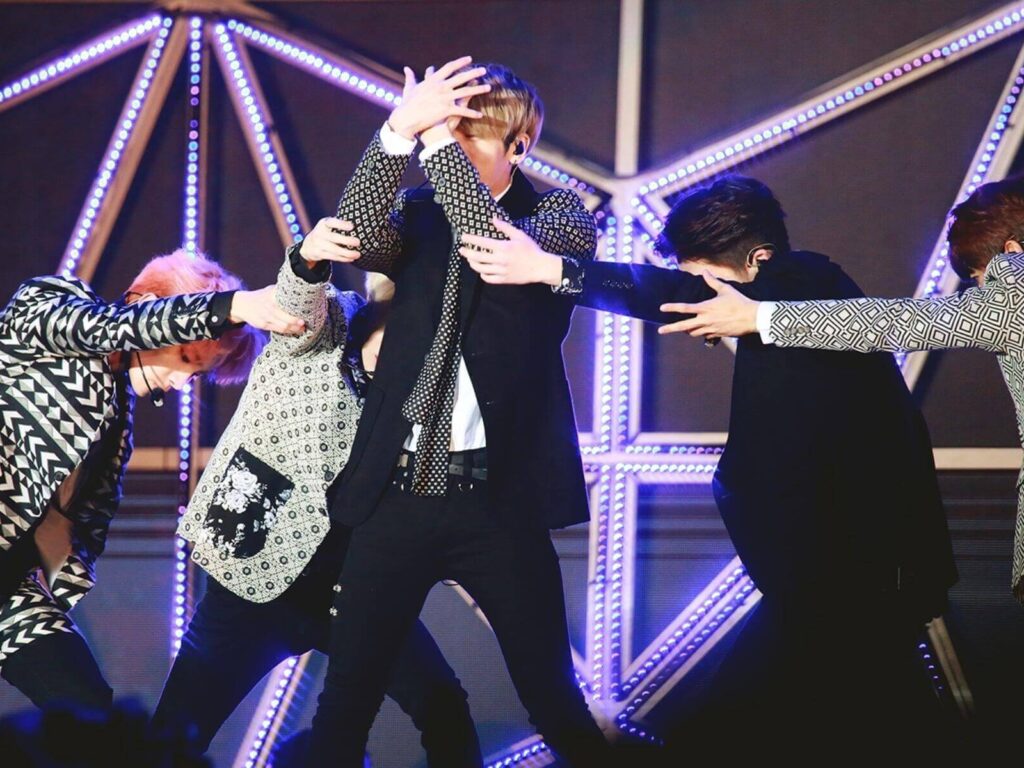Learning a new language can feel intimidating, but Korean gives you a unique advantage: Hangul, the Korean alphabet. It’s one of the most logical writing systems in the world, and many learners can pick it up in just a few weeks.
The real challenge isn’t learning the basics; it’s staying consistent. That’s where K-pop makes a difference. More than just catchy music, K-pop is filled with everyday expressions, modern slang, and natural pronunciation. The rhythm and repetition in lyrics help words stick in your memory far better than drills or flashcards.
In this guide, we’ll explore 10 beginner-friendly K-pop songs that make learning Hangul fun and practical. Each track was chosen for its clear pronunciation, simple vocabulary, and cultural richness, perfect for keeping you motivated as you build confidence in Korean.
1. Boy With Luv (BTS)
This cheerful hit is a fantastic starting point. It repeats simple yet useful words like 너 (neo, you), 사랑 (sarang, love), and 마음 (ma-eum, heart). BTS pronounces syllables clearly, making it easy to follow along with Hangul blocks. Listening while reading helps you connect shapes to sounds, for example, seeing 사랑 and instantly hearing “sarang.” The upbeat rhythm also makes practice feel fun and effortless.
2. TT (TWICE)
Catchy and playful, “TT” doubles as a mini language lesson. You’ll hear verbs tied to emotions such as 울다 (ulda, cry) and 웃다 (utda, laugh). The repetitive chorus makes these words easy to remember, while the music video’s expressions give visual cues that reinforce meaning. It’s a perfect blend of sound, words, and imagery for beginners.
3. Haru Haru (BIGBANG)
Slower songs can be the most effective for learners, and “Haru Haru” (Day by Day) is a great example. The phrase 하루하루 repeats throughout, clearly showing how Hangul syllables form words. Emotional vocabulary like 약속 (yaksok, promise) and 눈물 (nunmul, tears) appear often, giving you practical words for real-life conversations.
4. Good Day (IU)
IU’s “Good Day” is famous for her soaring vocals, but it’s also beginner-friendly. Phrases like 좋은 날 (jo-eun nal, good day) and 행복해 (haengbokhae, happy) are everyday expressions you’ll use often. IU’s clear pronunciation and moderate pace make following along with Hangul lyrics straightforward and enjoyable.
5. As If It’s Your Last (BLACKPINK)
This BLACKPINK anthem is filled with repeatable, useful phrases such as 오늘 밤 (oneul bam, tonight) and 사랑해 (saranghae, I love you). These are easy wins for learners since they’re both common and fun to sing. The catchy rhythm ensures you’ll remember them long after the song ends.
6. Replay (SHINee)
“Replay” is one of SHINee’s most beloved classics, and it’s excellent for language learners. With words like 첫사랑 (cheot sarang, first love) and 예쁘다 (yeppeuda, pretty), the song combines simple vocabulary with gentle pacing. The syllables flow smoothly, making it easy to practice reading Hangul step by step.
7. Growl (EXO)
Repetition is the star here. From 야 (ya, hey) to 이리 와 (iri wa, come here), the lyrics mimic casual conversations you’ll hear in daily Korean. The delivery is sharp and rhythmic, which helps you time-match Hangul syllables to sounds while keeping up with the beat.
8. Red Flavor (Red Velvet)
This upbeat summer anthem is bursting with beginner-friendly words related to daily life, such as 여름 (yeoreum, summer) and 달콤해 (dalkomhae, sweet). Because the chorus repeats often and moves at a manageable speed, memorization feels effortless. It’s a fun way to connect vocabulary with feelings, food, and the seasons.
9. Very Nice (SEVENTEEN)
The chorus of “Very Nice” repeats 아주 (aju, very) so often that you’ll never forget it. Intensifiers like this are essential for everyday speech, and SEVENTEEN delivers them in a way that sticks. The high-energy beat also gives learners a chance to practice reading Hangul faster without losing accuracy.
10. Sorry, Sorry (Super Junior)
This legendary hit is not just addictive but also practical for learners. Words like 미안해 (mianhae, sorry) and 너무 (neomu, too much) appear frequently. Even though the tempo is fast, Super Junior’s clear enunciation makes it easy to follow along. It’s a great way to train your ear while enjoying one of K-pop’s biggest songs.
Conclusion
K-pop isn’t just music; it’s a fun and effective tool for mastering Hangul and learning Korean. From BTS’s playful “Boy With Luv” to Super Junior’s timeless “Sorry, Sorry,” these songs combine repetition, clarity, and useful vocabulary that beginners can apply right away.
By singing along, reading lyrics, and repeating phrases, you create a powerful connection between sound, symbol, and meaning. Language learning doesn’t have to be all drills and textbooks; it can also be joyful, cultural, and full of music.
So next time you play your favorite track, open the Hangul lyrics and sing along. With every note, you’re not just enjoying K-pop, you’re taking one more step toward Korean fluency.





